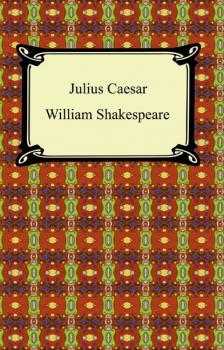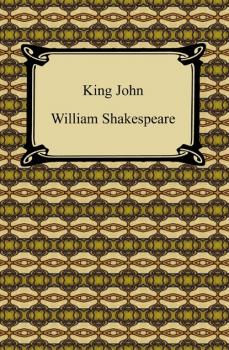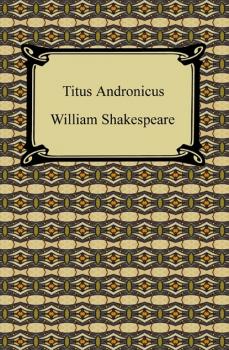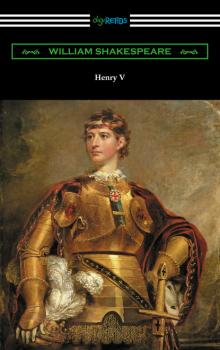William Shakespeare
Список книг автора William ShakespeareJulius Caesar
William Shakespeare's «Julius Caesar» is the first of three Roman history plays that Shakespeare would write. Closely based on actual events as chronicled in Plutarch's «Lives», it is the story of the tragic downfall of Julius Caesar and of those who conspire against him. At the beginning of the play it is feared that Julius Caesar wishes to make himself the King and thus dictator of Rome. From this fear a plan to kill him is hatched. Some of Shakespeare's most memorable lines can be found here in what is considered by many to be one of the greatest tragedies ever written.
King John
"King John", a historical play by William Shakespeare, recounts the events of King John's reign of England during the late twelfth and early thirteenth centuries. The play opens at the English court of King John. Richard I is killed by a man named Austria. Richard I's widow, Constance, projects that Arthur, Richard I's son should inherit the throne. When the king of France, Phillip becomes involved with appointments to the crown, a tumultuous series of alliances, betrayals, and murders follow.
Titus Andronicus
Widely accepted as Shakespeare's earliest tragedy, «Titus Andronicus» is the bloody story of a Roman general engaged in terrible revenge with the Queen of the Goths, Tamora. The play begins with Titus returning to Rome after ten years of fighting. He brings with him the defeated Tamora, Queen of the Goths, and her sons. Titus sacrifices one of Tamora's sons to avenge the sons he lost in the war, which begins a cycle of revenge in which Tamora and her lover Aaron the Moor plot and scheme against the remaining children of Titus. This entails especially horrific results for his daughter Lavinia, whose fate is thought to be based on a mythological story in Ovid's «Metamorphoses» about Procne and Philomela. The conclusion is full of further violence and death, with few characters remaining to tell the tragic story of Titus and his children.
Antony and Cleopatra
William Shakespeare's «Antony and Cleopatra» is the historical drama based on the lives of its title characters. Mark Antony is part of the ruling triumvirate of Rome and at the outset of the play he is living in Egypt engaged in an affair with the beautiful Egyptian Queen, Cleopatra. When the word that his wife has died and that Pompey is raising an army to challenge the authority of the triumvirate, Mark Antony returns to Rome to help manage the situation. «Antony and Cleopatra» is one of Shakespeare's great historical dramas.
The Sonnets and Narrative Poems
"The Sonnets and Narrative Poems" collects together all the non-dramatic poetry of William Shakespeare. While Shakespeare is known best for his plays he also wrote numerous love sonnets and a handful of narrative poems which are excellent literary works in their own right. The narrative poems include two erotically themed works, «Venus and Adonis» and «The Rape of Lucrece» as well as the romantic narratives of «A Lover's Complaint» and «The Phoenix and the Turtle». Shakespeare also wrote a collection of 154 love sonnets. Believed to be written throughout his lifetime there is some dispute as to the intended order of «The Sonnets». It is thought that he planned two contrasting series for the poems. The first is of the desire for a married woman of dark complexion, the so-called «dark lady», and the other about the conflicted love of a fair young man, the «fair youth». This classic collection of non-dramatic poetry shows Shakespeare in a different light than his dramatic works and helps to exemplify the full breadth of his immense literary talents.
All's Well That Ends Well
First published within Shakespeare's «First Folio» of 1623, «All's Well That Ends Well», rides a fascinating dramatic line between the comedy and the tragedy. The play tells the story of Helena, a penniless worker at the Palace of Rousillion, and her cunning adventures to wed Bertram, the prosperous son of Rousillion. When Helena rids the King of France of a peculiar illness, she is rewarded the hand of Bertram. Faced with hesitancy from Bertram, she devises a most devious plan to birth his son and keep his ring. Based on Baccacio's, «The Decameron», the play energizes a classic theme of love conflicted by class. Full of the expected wit and ardor of Shakespeare, «All's Well That Ends Well» defies typical genre classification, remaining an anomaly among the Shakespearean canon.
Henry IV, Part II
The third part of Shakespeare's impressive 'Henriad,' this play follows «Richard II» and «Henry IV, Part 1,» and precedes «Henry V.» In this portion of the tetralogy of history plays, Prince Hal is once again out of favor with his father the king, who is in his last months of life. Falstaff, the comical criminal, is further rejected by Prince Hal, who believes he must disassociate himself with the London underworld before becoming king. This is certainly a more somber play, for Henry IV dies, and Falstaff reflects on his own approaching death. A credible play worthy of the Shakespeare's early writings, «Henry IV, Part 2» is a work of conflict, reconciliation, and musings on life and death that attest to the universal nature of the Bard of Avon's canon.
The Merchant of Venice
"The Merchant of Venice" is the story of Antonio, the drama's title character, and his friend Bassanio. Bassanio is in need of money so that he may woo Portia, a wealthy heiress. Bassanio asks Antonio for a loan and Antonio agrees to this loan, however all his money is tied up in shipping ventures. Together the two go to Shylock, a Jewish moneylender, to request a loan for Bassanio to be guaranteed against Antonio's shipping ventures. Shylock agrees to the loan at no interest in the condition that if the debt is not repaid Shylock may collect a pound of Antonio's flesh. At the same time Portia, who is being wooed by various suitors, is upset over a curious stipulation in her father's will regarding the man that she may marry.
Henry V (Annotated by Henry N. Hudson with an Introduction by Charles Harold Herford)
Believed to have been written in 1599, William Shakespeare’s “Henry V” forms the final installment of a tetralogy of plays which includes “Richard II”, “Henry IV, Part I”, and “Henry IV, Part II”. The play focuses on the events surrounding the Battle of Agincourt during the Hundred Years’ War. Henry, who is introduced in the earlier plays as a wild and undisciplined youth, has now come of age and ascended to the thrown following the death of his father, King Henry IV. At the outset of the play we find the English fleet embarking for France in pursuit of conquest of the nation just across the English Channel. At this time a plot to assassinate the King by the Earl of Cambridge and two others is discovered. Henry’s cleverness in uncovering the plot and the ruthlessness in which he deals with the conspirators exhibits that his immaturity of youth, exhibited in earlier plays, has now past and that he has grown into a competent monarch. “Henry V”, along with the other plays of the tetralogy, provides an incredible dramatic portrayal of an important chapter in the long military conflict between two of the most powerful of European nations, England and France. This edition includes a preface and annotations by Henry N. Hudson and an introduction by Charles Harold Herford.
Romeo and Juliet (Annotated by Henry N. Hudson with an Introduction by Charles Harold Herford)
Based upon an Italian tale which was translated by 16th century English poet Arthur Brooke into the narrative poem “The Tragical History of Romeus and Juliet,” Shakespeare’s “Romeo and Juliet” is one of the Bard’s most popular and frequently performed plays. Romeo who is a member of the house of Montague falls in love with the beautiful Juliet, a member of the house of Capulet. The Montagues and the Capulets have been engaged in a feud for many years and as such the love between Romeo and Juliet is a forbidden one. Written near the end of the 16th century, “Romeo and Juliet,” is one of Shakespeare's earliest dramas, the story of a love that can never be truly realized and the tragedy that ensues. Regarded as one of the greatest and most tragic love stories of all time, “Romeo and Juliet” is an archetypal story of star-crossed young lovers which has inspired countless imitations on both stage and screen. This edition is annotated by Henry N. Hudson, includes an introduction by Charles Harold Herford, and a biographical afterword.









